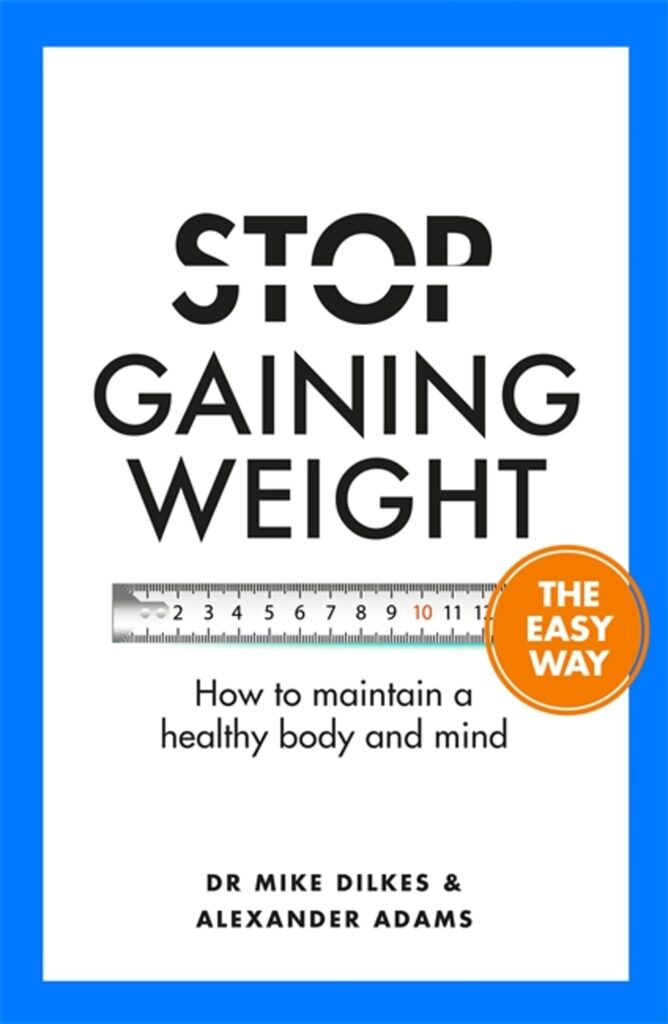Why Do I Gain Weight Easily? Causes Of Unintentional Weight Gain
Weight gain can be extremely frustrating, especially when you don’t know what’s causing it. Weight loss is not easy for most people. And it can be frustrating if your attempts at trying to lose weight seem to go in the opposite direction. You may be wondering to yourself, “Why do I gain weight so easily?” If you are anything like me, two days off of plan and the pounds just seem to pile back on! But why?
If these frustrations resonate with you, there may be a number of reasons why you struggle with weight gain. Sometimes it is not as simple as “you just eat too much!!”. The good news is there are actually some simple explanations that are easy to fix. In this article we will talk about some of the common reasons for unwanted weight gain and what you can do to address them.
1. You may be eating too many highly processed foods
What is a processed food?
A processed food is any food that has been altered in some way during preparation.
Food processing can be as basic as:
- Freezing
- Canning
- Baking
- Drying
In recent years, many nutrition experts have linked the obesity problem to the ever growing popularity of ultra-processed foods. These foods are engineered to have a long shelf life and irresistible combinations of salt, sugar, fat and other additives.
Processed foods tend to make people overeat because they are full of refined carbohydrates, added sugars and fat that appeal to the human palate. Most of these foods, however, tend to lack fiber, protein, vitamins and other important nutrients.
In recent studies it is found that people who eat a diet of highly processed foods regularly eat 500 – 1000 calories more per day than a person who consumes a diet of fresh fruit, vegetables and lean meats.
Examples of common processed foods include:
- Breakfast cereals
- Cheese
- Tinned vegetables
- Bread
- Savoury snacks, such as crisps, sausage rolls, pies and pasties
- Meat products, such as bacon, sausage, ham, salami and paté
- Microwave meals or ready meals
- Cakes and biscuits
- Soft drinks
Tips:
- Cook from scratch
- Avoid microwave meals
- Snack on fresh fruit and vegetables
- Swap your breakfast cereal for fat free yoghurt and fresh berries
2. You might be eating too much sugar
Regularly downing sugary foods and beverages, such as candy, cakes, soda, sports drinks, ice cream, iced tea, and sweetened coffee drinks, can easily enlarge your waistline.
The UK government recommends that free sugars – sugars added to food or drinks, and sugars found naturally in honey, syrups, and unsweetened fruit and vegetable juices, smoothies and purées – should not make up more than 5% of the energy (calories) you get from food and drink each day.
This means:
- Adults should have no more than 30g of free sugars a day, (roughly equivalent to 7 sugar cubes).
- Children aged 7 to 10 should have no more than 24g of free sugars a day (6 sugar cubes).
- Children aged 4 to 6 should have no more than 19g of free sugars a day (5 sugar cubes).
- There’s no guideline limit for children under the age of 4, but it’s recommended they avoid sugar-sweetened drinks and food with sugar added to it.
Slimming World and sugar:
I personally believe that people following the Slimming World plan are entitled to eat far too much sugar. My main argument used to be Muller lights being classed as “free” which is an absolute joke! I still believe they are not Synned high enough due to their amount of sugar. But I always suggest avoiding them as much as possible!
3. Lack of movement
EAT LESS, MOVE MORE… If you burn more calories than you consume in a day you will lose weight.
Modern life has made many things more convenient. You can change the channel without leaving the couch and even order groceries online that get delivered right to your door. But these modern conveniences also make you less active. Most adults in the UK engage in very little physical activity or worse no physical activity at all. When it comes to weight management, exercise an important part of the equation and every bit of movement counts.
Related Article: 10 Ways To Move More Every Day and Burn Calories
4. You have a medical issue which is undiagnosed
By now we all know that the healthiest way to lose weight involves sticking to a well-balanced and nutritious diet while also exercising regularly. However your weight gain could also be due to an undiagnosed underlying health issue.
Some of these could include:
- Hypothyroidism [Underactive Thyroid]
This condition affects your thyroid gland and may cause weight gain or difficulty with weight loss.
Read more here
- Cushing’s Syndrome
Cushing’s Syndrome is a medical condition in which the adrenal glands produce way too much cortisol—otherwise known as your stress hormone. One of the main signs is weight gain and more body fat.
Read more here
- Depression
Researchers know that depression can lead to weight gain and that weight gain can also contribute to depression. Weight gain can happen when a person is depressed because: They lose interest in activities and are less physically active. They tend to eat a diet higher in fat due to poor food choices.
Read more here - Polycystic ovary syndrome (PCOS)
PCOS makes it more difficult for the body to use the hormone insulin, which normally helps convert sugars and starches from foods into energy. This condition called insulin resistance can cause insulin and sugar glucose to build up in the bloodstream. High insulin levels increase the production of male hormones called androgens. High androgen levels lead to symptoms such as body hair growth, acne, irregular periods and weight gain.
Read more here - Menopause
As women age, the onset of menopause can often lead to weight gain and/or make it increasingly difficult for women to lose weight. The hormonal changes of menopause might make you more likely to gain weight around your abdomen than around your hips and thighs.
Read more here
There are many other medical issues that can cause weight gain. If you are concerned always contact your GP for advice.
5. Check your medication
There are many medications that can cause weight gain. In particular some beta-blockers taken for high blood pressure, some older antidepressants and diabetes medications can cause weight gain. If you suspect that your prescriptions are causing you to pile on the pounds, for example you started gaining weight in a short space of time, tell your doctor and see if any substitutions can be made.
It is also very important to note that some over-the-counter medications can also cause weight gain. For example, allergy medications that contain diphenhydramine can increase your appetite.
6. Lack of sleep
A lack of sleep is linked to poorer food choices, increased hunger and calorie intake, decreased physical activity, and ultimately, weight gain. If your weight loss efforts are not producing results, it may be time to examine your sleep habits.
Tips:
- Limit screen time before bed
- Try eating a banana before bed
- Get a better pillow
- Go to bed at the same time every night
- Limit caffiene
- When you are tired go to bed, don’t fall asleep on the sofa
7. You have a life of YO-YO Dieting
Yo-Yo dieters may have long periods (a few years) where their low weight is sustained, however, for a variety of psychological, emotional and physiological reasons they eventually return to their heavier weight. Individuals who yo-yo diet may actually end up gaining more weight than they originally started with. People who are obese often struggle with yo-yo diets, particularly if they are not given correct information about sustainable and long term weight loss. Fad diets or extreme dieting for short periods of time will also result in the yo-yo dieting cycle.
8. You skip breakfast
People who skip breakfast on a regular basis tend to overeat throughout the rest of the day through grazing and eating large portions. Skipping breakfast will increase your hunger and may cause you to choose foods like fats and carbohydrates that appear to be more filling.
Recommended Reading…
This very much underrated book from Amazon is absolutely amazing. It really opened my eyes and helped me move forward with my weight loss.
The world does not need another diet book. But what it does need, is a book that explains how to achieve and maintain a stable, healthy weight.
The bottom line…..
Many factors can contribute to unintentional weight gain.
Poor sleep, too many calories, no exercise and eating too many processed foods are just some of the habits that may increase your risk of weight gain.
With a few simple changes such as mindful eating, exercise, and focusing on whole foods you can reach your goals and lead a much healthier lifestyle.











